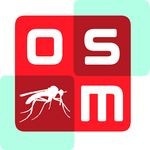OpenSourceMalaria:Technical Operations
This provides an outline of the technical and development operations for the Open Source Malaria (OSM) project.
This document is intended to provide an outline of the technical and development operations for the Open Source Malaria (OSM) project. It also includes some related information about social media accounts.
Main website
The main landing page for the project can be found here. The project activity is pulled directly from other sites.
A guide to getting started as a contributor can be found here. The various platforms used are also summarised below.
The source for the landing page is also available if needed; the pulling activity uses Ruby/Sinatra.
Lab notebook
Users use the open source lab notebook Labtrove (previously Lablog) a PHP web application developed by the University of Southampton. Currently the primary malaria blogs run on malaria.ourexperiment.org on a Debian server at the University of Southampton.
How To:
- Write a General Entry
- Write the Perfect Chemistry Entry
- Write the Perfect Biology Entry
- Use the ELN to the Maximum Effect
Odd jobs
For random jobs where we require hosting/a bit of compute the tendency is to use Nectar, a cloud based provider for academic and research institutions in Australia. It provides two free instances to researchers with reasonable enough specs that they can be used for most jobs. Debian or Ubuntu is typically the flavour of choice, but Nectar provides a wide range of images and snapshots including versions of Scientific Linux. For jobs which may require significantly more processing we may rely instead upon EC2 instances.
Communication
There are several different means used for communication, with email being the least favoured (due to a lack of openness).
OSM has a Twitter account, as well as a Google+ account. In addition Youtube account is used to post the recorded videos of meetings.
The primary means of communicating issues including admin, chemistry and technical related queries is the Github account. The current todo list, tagged with the category of issue it relates to can be found on the 'Issues' tab of the OSM to do list repo.
Github
Github is used for project management - a place to keep the To Do list. Tasks are called "Issues" and may be assigned a person responsible, a deadline and some tags to allow active items to be grouped. When a task is complete, it can be closed.
Almost all code and data for the OpenSourceMalaria organisation account (and landing page website) is resident on one of the Github repositories. The main .sd file of all compounds, for example, is kept there. All other experimental data will be on the electronic lab notebook, or summarised on the wiki.
If you still are unable to find something, post an issue on the Github Issues (to do) list and tag it with "Administration" and "question".
Online Meetings
Online meetings use Adobe Connect provided and hosted by the University of Sydney. As with everything else, these meetings are open to everyone and each meeting is recorded and subsequently uploaded to the OSM youtube account.
- Mike Robins 20:00, 26 October 2013 (EDT):
